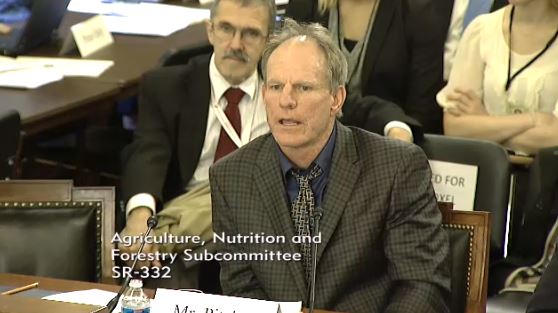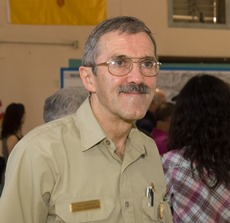
The National Firefighter Registry (NFR) that is supposed to collect data on a voluntary basis to better understand the link between workplace exposures, cancer, and other chronic diseases among firefighters, hopes to begin testing the enrollment system “in the coming months,” according to an update from the leader of the Registry, Kenny Fent.
That is the gist of the message sent by Mr. Fent today, with no other significant details about the registry itself. But he announced three additions to the NFR Subcommittee, one of which is Tom Harbour, the former Director of Fire and Aviation for the US Forest Service. Three members of the Subcommittee are stepping down, including Chuck Bushey who also has a wildland fire background. Mr. Fent said the purpose of the Subcommittee is to “provide independent advice and guidance.”
Almost four years ago the Firefighter Cancer Registry Act of 2018 which passed July 7, 2018 required that the National Institute for Occupational Safety and Health (NIOSH), an agency within the Centers for Disease Control and Prevention (CDC), establish a Firefighter Cancer Registry. Firefighters on the ground have yet to see any concrete examples of the effort, other than changing the name to just “National Firefighter Registry.”
Last year Congress made another attempt to get the registry started by adding a provision into the Tim Hart Wildland Firefighter Classification and Pay Parity Act, legislation which would also accomplish several things to improve the pay and working conditions of federal wildland firefighters. (We covered that legislation in another article.) But the Tim Hart Act has not made it out of committee since it was introduced in the House October 19.
Our take
The National Firefighter Registry has the potential to develop data that documents the health effects of fighting fire. Personnel considering it as a profession could make a better-informed decision in their career choice. And those tactical athletes who have been breathing smoke while working in one of the most physically demanding professions, could have facts to back up claims for treatment of conditions likely caused by the job. Congress and the Office of Worker’s Compensation Programs (OWCP) could better establish presumptive disease policies so that firefighters would not have to attempt to prove that certain cancers or their damaged lungs, knees, or back, were a result of their employment with the government.
Congress must exercise their oversight responsibility and hold hearings if necessary to strongly encourage Kenny Fent, the leader of the FR, to make every effort possible to establish the registry sooner rather than later.
It’s been almost four years.
Firefighters are biased toward action. They know how to get stuff done. Let’s get the NFR done.


